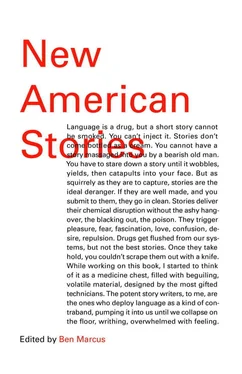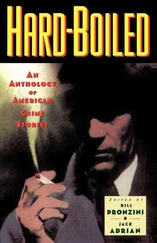“All day long people insult him and he doesn’t kill any of them.”
Rezvan sometimes skipped work and came with me to the fields. He’d ride in the back of the truck, standing up, so that his head was above the cab, the wind pouring over him. He wanted to know all the details of my job. He became better than I was at some things. He could spot poor field drainage from far away. He loved to point out the signs of it — the mint, the rushes, the wire grass, the willows.
For lunch we stopped in the towns along the way at small, fragrant home-style diners. Almost all of them were run by Ukrainian women. Each one adored Rezvan. He would kiss their hands and speak in his strange accent — part British, part Romanian — and they would serve him free platefuls of food, one after another, hovering over him as if he were a long-lost son from the old country.
One afternoon, while we were driving back to the city from a little town called Yellow Grass, I fell asleep at the wheel. I woke up after the crash to see Rezvan crumpled against the passenger door. I felt myself rising then, far above the car, far above even the tree line. From there I watched myself crawl out of the wreck and drag Rezvan out onto the grassy shoulder. And then, instead of watching my own body run down the long charcoal highway, I stayed above Rezvan. I watched the trees bow in the wind toward his body, listening for his heartbeat.
Later that night, when I entered his hospital room for the first time, I expected him to refuse to speak to me. Rezvan smiled, though. “In my country,” he said, “you could work for Ceauşescu. He has been trying to do this to me for years.” I started apologizing then, over and over. Rezvan just motioned me toward the bed and then put his arms around me. “It’s okay, it’s okay,” he said. “Don’t cry. This is America. This is what is supposed to happen. I will sue you, and your insurance will give us money, and we will go on a trip. To California, a vacation. I am so happy.”
I wiped my eyes and looked at him. His head was cocked to the side. A thin white bandage was wrapped around his forehead, and blood was still matted in the black curls of his hair. One side of his face was torn apart. His leg was suspended in a sling. Still, he looked at me incredulously, wondering how I could be crying when this was such a stroke of luck.
For the next few months he had a cane, which he loved. He liked to point at things with it. The scars settled into faint but permanent tracks down the left side of his face. He liked that, too. We saw the movie Scarface over and over again. When he discarded the cane, he still walked with a slight limp, which gave his gait an easy rocking motion that seemed strangely to suit him. He never once blamed me; I don’t think it ever crossed his mind.
—
Rezvan and I stayed engaged for two years. He seemed to think of engagement as an alternative to marriage rather than as a lead-up to it. I didn’t mind, actually. I just wanted to be with him. Life with Rezvan had a sort of gloss to it always. He passed quickly from emotion to emotion, from sadness to gratitude to arrogance, but he never fell into depression, ever.
Perhaps because I was so happy with Rezvan, I did not notice what may have been obvious signs. But, oddly enough, the signs indicating that a man is in love with another woman are often similar to the signs of an immigrant in a new country, his heart torn in two. He wrote long letters home; he hesitated to talk about the future; during lonely nights he seemed to be murmuring as he fell asleep, but not to me.
Nearly a year passed before I even noticed anything, or admitted to myself that I noticed anything. Then one day Rezvan received a phone call at four in the morning. I didn’t understand a word of it, since it was in Romanian, but in my half sleep I could hear him mutter the word rila again and again, sometimes insistently. And when he hung up, after about an hour and a half, he just sat there in the living room like a paralyzed man, the light slowly rising across his body. I asked him, “Rezvan, what does rila mean?” He told me that it meant “well lit,” as in a room.
Two days later, as I walked up our driveway in my housecoat, the mail in my hand, I glanced through the letters and noticed a thick letter from Rilia Balescu. Rila was Rilia, a person, a relative. When I walked in the door, Rezvan was standing in his striped pajamas drinking coffee, smoking, scratching his head. As I handed him the letter, I tried to read his face, but saw nothing. So I said, “Who is Rilia?”
“She is my sister, my baby sister. Gavrilia.”
Does an extra beat pass before one tells a lie? This is what I had always believed, but Rezvan answered immediately. Perhaps he had been waiting for the question.
“I didn’t know you had a sister.”
“I don’t like to talk about her. We disowned each other long ago. She follows Ceauşescu still; she has pictures of him and his son on her wall as if they were rock stars. I am trying to bring her over, but she is stubborn. She would rather go to the Black Sea and vacation with her boys than come here and live with me.”
“So why have you never told me about her?”
“Because it is not wise to speak aloud the one thing you want more than anything. You know that.”
“No, I don’t know that.”
“It’s true. Romanians have a word for it: ghinion. It means don’t speak aloud what you want most. Otherwise it will not happen. You must have a word for this in English?”
“Jinx.”
“Okay. I did not tell you about my sister because of jinx.”
“Why did you tell me her name meant ‘well lit’?”
“Pardon?”
“The other day I asked you, and you said that ‘Rilia’ was the word for ‘well lit.’ ”
“No, no. Rila is the word for ‘well lit.’ Rilia is my sister.” He smiled and kissed my face. “We will have to work on your accent.”
Over the next month we settled into a routine. When Rezvan finished writing his letters in the night, he padded down the driveway, set the letters in the mailbox, and lifted the tiny, stiff red flag so that our mailman would stop in the morning. And then, after Rezvan was asleep, I would rise out of bed and go to the mailbox myself, pick out the ones to Rilia, and slip them into the pocket of my housecoat. I did the same thing with the letters she sent him. I collected those in the morning.
At first it didn’t feel like a strategy. I was desperate to know if Rilia really was his sister or his wife — as if her handwriting would tell me. Rezvan left for work an hour before I did, and I opened the letters then. I sat on our bed, laying the pages in front of me, cross-referencing. Some of her passages were blacked out by censors. I found many names, but mostly two, Gheorghe and Florian, again and again. Gheorghe and Florian, Gheorghe and Florian, Gheorghe and Florian. I began to realize, very slowly, that these were probably their children.
On one of these mornings my mother showed up at my door to drop off a skirt she had sewed for me. “Good,” she said, bustling in, “you’re home. I wanted to drop this off.” Already, as she said this, she was rapidly moving through the rooms of our apartment. My mother liked to do this, to catch me off guard and check all my rooms immediately for anything I might hide if given the time. “What is this?” she said, reaching the bedroom, where all the pages were strewn across the bed.
“Oh, that’s just some stuff I’m reading for Rezvan. Proofreading.”
She picked up a sheet. “Oh, so now you proofread in Romanian?”
I smiled weakly. She didn’t pry, but for once I wished she would. What I wanted to do was tell her that this was my life spread across the bed, thin as paper, written in a language I could not understand, dotted with four names — Rezvan, Gavrilia, Gheorghe, Florian — but never my own. I wanted to ask her how she felt when my father was having an affair. And I wanted to ask what happened to the other woman. My father never married her, even after he and my mother split. Where had she drifted off to? Did she ever lose her breasts? Did she get well again? Was she happy somewhere now?
Читать дальше










![Женя Джентбаев - neo futura [stories]](/books/692472/zhenya-dzhentbaev-neo-futura-stories-thumb.webp)

